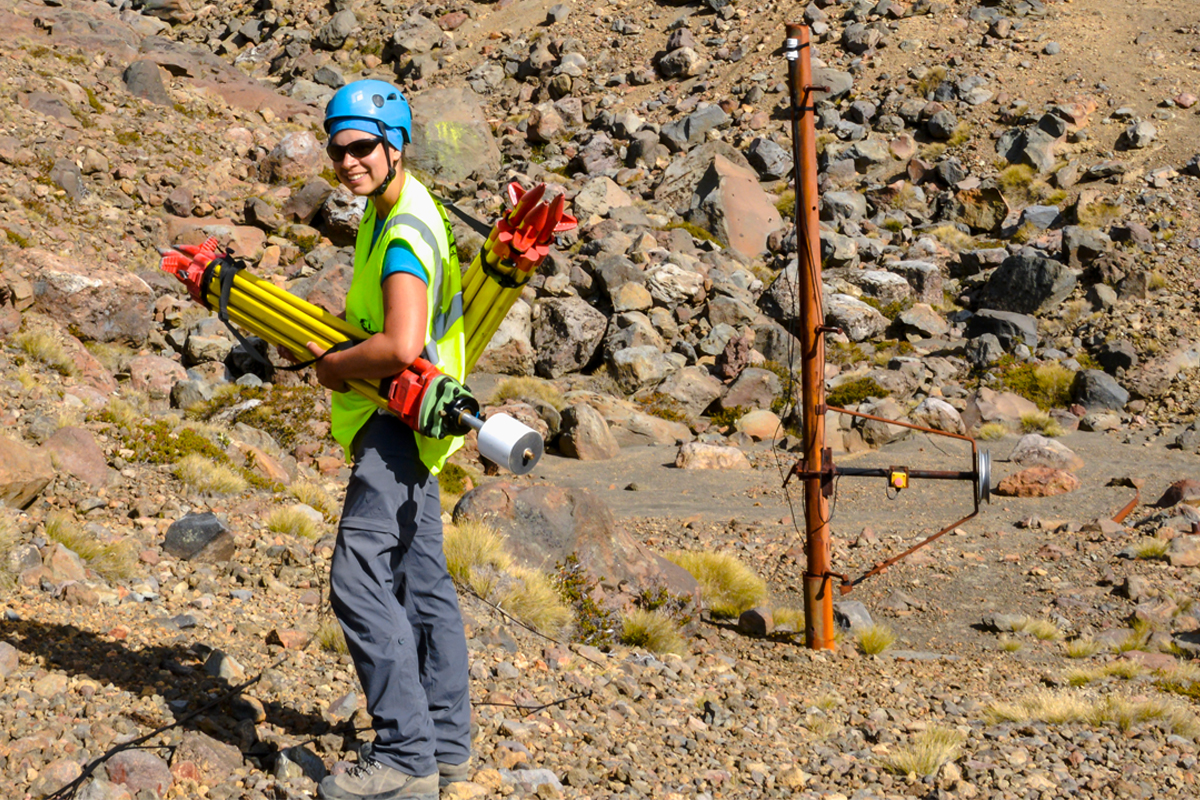All Categories
Featured
Table of Contents
Geophysical Survey - Mining Fundamentals in Willetton Western Australia 2021

(PREM)., and the limits between layers of the mantle are consistent with stage shifts.

Schematic of Earth's magnetosphere. Circulations from left to.
Inside the magnetosphere, there are relatively thick areas of solar wind particles called the Van Allen radiation belts. Geophysical measurements are typically at a particular time and place. Accurate measurements of position, together with earth deformation and gravity, are the province of geodesy. While geodesy and geophysics are separate fields, the two are so closely linked that numerous scientific companies such as the American Geophysical Union, the Canadian Geophysical Union and the International Union of Geodesy and Geophysics encompass both.
What Does A Geophysicist Do? in Martin Aus 2022
, integrates huge coordinates and the regional gravity vector to get geodetic coordinates. This method just provides the position in 2 collaborates and is more difficult to use than GPS.
Gravity measurements became part of geodesy due to the fact that they were required to related measurements at the surface area of the Earth to the recommendation coordinate system.
Water level can also be measured by satellites using radar altimetry, adding to a more precise geoid. In 2002, NASA released the Gravity Healing and Environment Experiment (GRACE), wherein 2 twin satellites map variations in Earth's gravity field by making measurements of the distance in between the 2 satellites using GPS and a microwave varying system. Satellites in area have actually made it possible to collect information from not only the visible light area, but in other areas of the electro-magnetic spectrum. The worlds can be characterized by their force fields: gravity and their magnetic fields, which are studied through geophysics and area physics. Measuring the modifications in acceleration experienced by spacecraft as they orbit has actually permitted great information of the gravity fields of the planets to be mapped.
Geophysical Surveys For Petroleum in Kelmscott Aus 2020

Since geophysics is worried about the shape of the Earth, and by extension the mapping of features around and in the planet, geophysical measurements include high accuracy GPS measurements. These measurements are processed to increase their accuracy through differential GPS processing. Once the geophysical measurements have been processed and inverted, the interpreted outcomes are outlined utilizing GIS.
Many geophysics business have actually developed internal geophysics programs that pre-date Arc, GIS and Geo, Soft in order to fulfill the visualization requirements of a geophysical dataset. Expedition geophysics is applied geophysics that often uses remote picking up platforms such as; satellites, airplane, ships, boats, rovers, drones, borehole picking up equipment, and seismic receivers.
Aeromagnetic information (aircraft collected magnetic information) collected utilizing traditional fixed-wing aircraft platforms need to be fixed for electro-magnetic eddy currents that are created as the airplane moves through Earth's electromagnetic field. There are also corrections related to changes in measured prospective field intensity as the Earth rotates, as the Earth orbits the Sun, and as the moon orbits the Earth.
How To Become A Geophysicist in Rockingham Australia 2023
Signal processing involves the correction of time-series data for undesirable noise or mistakes introduced by the measurement platform, such as aircraft vibrations in gravity data. It likewise includes the decrease of sources of noise, such as diurnal corrections in magnetic data., meteorology, and physics.
The magnetic compass existed in China back as far as the fourth century BC. It was utilized as much for feng shui as for navigation on land. It was not up until great steel needles might be forged that compasses were used for navigation at sea; before that, they might not keep their magnetism enough time to be helpful.
By looking at which of eight toads had the ball, one might determine the instructions of the earthquake.'s (1600 ), a report of a series of precise experiments in magnetism.
Geophysicist Salary in City Beach Australia 2020
In 1687 Isaac Newton published his, which not only laid the foundations for classical mechanics and gravitation Likewise explained a range of geophysical phenomena such as the tides and the precession of the equinox. The first seismometer, an instrument efficient in keeping a constant record of seismic activity, was built by James Forbes in 1844. Dietmar; Sdrolias, Maria; Gaina, Carmen; Roest, Walter R. (April 2008). "Age, spreading rates, and spreading out asymmetry of the world's ocean crust". Geochemistry, Geophysics, Geosystems. 9 (4 ): Q04006. Bibcode:2008 GGG ... 9. 4006M. doi:10. 1029/2007GC001743. S2CID 15960331. "Earth's Inconstant Magnetic Field". science@nasa. National Aeronautics and Space Administration. 29 December 2003. Recovered 13 November 2018.
Runcorn, S.K, (editor-in-chief), 1967, International dictionary of geophysics:. Pergamon, Oxford, 2 volumes, 1,728 pp., 730 fig Geophysics, 1970, Encyclopaedia Britannica, Vol. Intro to seismology (Second ed.).
Latest Posts
Geophysical Survey In Archaeology in Neerabup Australia 2022
Geophysicists in Glen Forrest WA 2020
Geophysical Survey in Lockridge Oz 2023